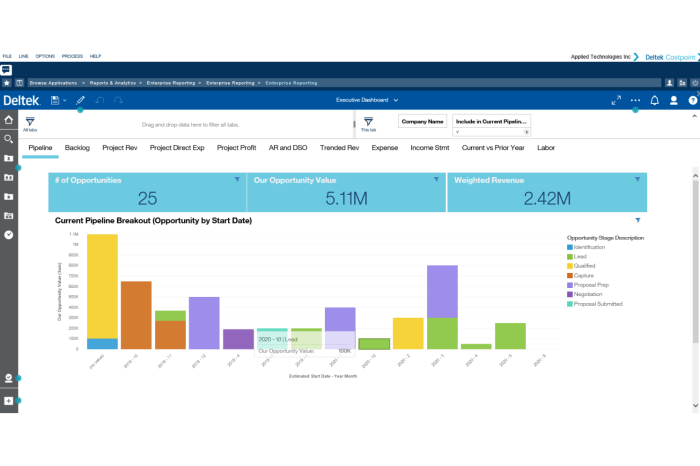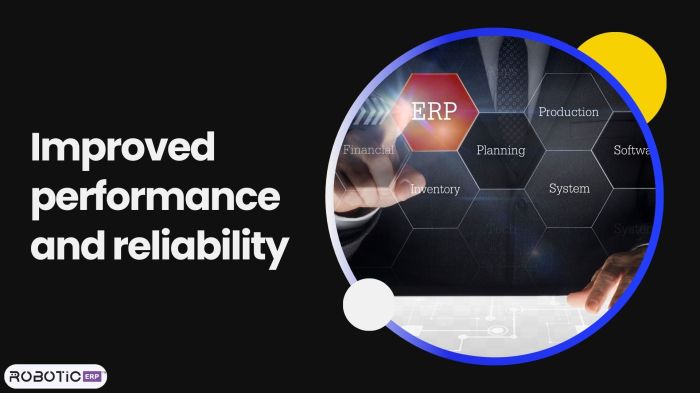ERP Software Near Me: Finding the perfect Enterprise Resource Planning (ERP) system can feel overwhelming. The right software can streamline your business operations, improving efficiency and profitability. But with so many options available, choosing a local provider is often the key to successful implementation and ongoing support. This guide will help you navigate the process of selecting and implementing ERP software tailored to your specific needs and location.
Consider factors such as the size of your business, your industry, and your budget. Local ERP providers often offer personalized service and on-site support, which can be invaluable during implementation and beyond. Researching different vendors and comparing their offerings is crucial to finding the best fit. Don’t hesitate to request demos and speak with current clients to gain firsthand insights into their experiences.

Source: thecfoclub.com
A well-chosen ERP system can significantly contribute to your company’s long-term success.
The search for the perfect Enterprise Resource Planning (ERP) software can feel overwhelming. With so many options available, understanding your specific needs and finding a solution that fits both your budget and your business’s unique requirements is crucial. This comprehensive guide will walk you through the process of selecting the right ERP software, focusing on local solutions and addressing frequently asked questions.
Understanding Your ERP Needs: A Starting Point
Before diving into the specifics of ERP software near me, it’s essential to understand your business’s current challenges and future goals. What processes are inefficient? Where are bottlenecks occurring? What data is crucial for informed decision-making? Answering these questions will help you identify the features and functionalities you need in an ERP system.

Source: erpcrmprovider.com
Consider these key aspects:
Key Factors to Consider When Choosing ERP Software
- Industry-Specific Needs: Different industries have unique requirements. A manufacturing ERP will differ significantly from one designed for retail or healthcare. Ensure the software caters to your specific industry’s regulations and workflows.
- Business Size and Complexity: Small businesses may need a simpler, cloud-based solution, while larger enterprises may require a more robust, on-premise system. Scalability is crucial for future growth.
- Budget and ROI: ERP software comes with a price tag, including initial implementation costs, ongoing maintenance, and potential training expenses. Calculate the potential return on investment (ROI) based on improved efficiency and reduced costs.
- Integration Capabilities: Your ERP system needs to seamlessly integrate with your existing software, such as CRM, accounting, and e-commerce platforms. Check for API integrations and compatibility.
- Data Security and Compliance: Data security is paramount. Ensure the software provider complies with relevant data protection regulations (like GDPR, CCPA) and offers robust security measures.
- Support and Training: Look for vendors who offer comprehensive support and training to ensure a smooth implementation and ongoing operation.
Finding ERP Software Providers Near Me: Local vs. Cloud: Erp Software Near Me
The term “ERP software near me” can be interpreted in two ways: geographically close providers or cloud-based solutions accessible from anywhere. Let’s examine both:
Local ERP Software Providers: Advantages and Disadvantages
- Advantages: Easier in-person communication, potentially faster response times for support, stronger local community ties.
- Disadvantages: Limited choice, potentially higher costs, may not offer the same level of technological advancement as larger, national or international providers.
Cloud-Based ERP Solutions: Advantages and Disadvantages, Erp software near me
- Advantages: Accessibility from anywhere with an internet connection, scalability, lower upfront costs, automatic updates.
- Disadvantages: Reliance on internet connectivity, potential security concerns (though reputable providers have robust security measures), vendor lock-in.
Types of ERP Software: A Closer Look
Various types of ERP software cater to different business needs. Understanding these categories can help narrow your search:
Cloud ERP Software
Cloud ERP solutions are hosted on the vendor’s servers and accessed via the internet. This eliminates the need for on-site hardware and IT infrastructure. Examples include NetSuite, SAP Business ByDesign, and Infor CloudSuite.

Source: roboticerp.com
On-Premise ERP Software
On-premise ERP systems are installed and maintained on the company’s own servers. This offers greater control over data and security but requires significant upfront investment in hardware and IT expertise. Examples include SAP S/4HANA and Oracle E-Business Suite.
Open-Source ERP Software
Open-source ERP software is freely available and can be customized to meet specific needs. However, it often requires significant technical expertise to implement and maintain. Examples include Odoo and ERPNext.
Key Features to Look for in ERP Software
Beyond the basic functionalities, consider these advanced features that can significantly improve your business operations:
- Inventory Management: Real-time tracking of inventory levels, automated ordering, and demand forecasting.
- Supply Chain Management: Streamlining the flow of goods and services from suppliers to customers.
- Customer Relationship Management (CRM): Managing customer interactions and data to improve customer satisfaction and loyalty.
- Financial Management: Accounting, budgeting, and financial reporting tools.
- Human Capital Management (HCM): Managing employee data, payroll, and benefits.
- Business Intelligence (BI): Data analytics and reporting tools to gain insights into business performance.
- Project Management: Tools for planning, tracking, and managing projects.
The Implementation Process: A Step-by-Step Guide
Implementing ERP software is a significant undertaking. A well-planned implementation is crucial for a successful outcome:
- Needs Assessment: Thoroughly analyze your business needs and requirements.
- Vendor Selection: Research and select a suitable ERP vendor.
- Software Customization: Customize the software to fit your specific needs.
- Data Migration: Transfer your existing data to the new system.
- Testing and Training: Thoroughly test the system and train your employees.
- Go-Live: Launch the new ERP system.
- Post-Implementation Support: Ongoing support and maintenance are essential.
Frequently Asked Questions (FAQ)
- Q: How much does ERP software cost? A: The cost varies significantly depending on the size of your business, the features you need, and whether you choose a cloud-based or on-premise solution. Expect to invest a substantial amount, but remember to consider the long-term ROI.
- Q: How long does it take to implement ERP software? A: Implementation timelines vary depending on the complexity of the system and the size of your business. Expect several months, or even longer, for large enterprises.
- Q: What are the benefits of using ERP software? A: Benefits include improved efficiency, reduced costs, better data visibility, enhanced decision-making, and increased customer satisfaction.
- Q: Can I find local ERP consultants to help with implementation? A: Yes, many local IT consulting firms specialize in ERP implementation and support. Searching for “ERP consultants near me” will yield relevant results.
- Q: What if my business needs to scale quickly? A: Choose an ERP system that offers scalability. Cloud-based solutions generally offer better scalability than on-premise systems.
Resources
Call to Action
Ready to streamline your business operations and unlock new levels of efficiency? Contact us today for a free consultation to discuss your ERP software needs and find the perfect solution for your business.
Ultimately, selecting ERP software near you is a strategic decision that requires careful consideration. By weighing the various factors discussed, including local support, implementation services, and ongoing maintenance, businesses can make an informed choice that aligns with their specific needs and resources. Remember, the right ERP system is an investment in your company’s future, leading to enhanced productivity, improved decision-making, and increased profitability.
Investing the time and effort in thorough research will pay off in the long run.
Clarifying Questions
What is the average cost of ERP software?
The cost varies greatly depending on the size of your business, the features you need, and the vendor. Expect a range from a few thousand dollars to hundreds of thousands.
How long does it take to implement ERP software?
Implementation timelines vary depending on the complexity of the system and the size of your business. It can range from a few months to over a year.
What kind of training is involved with ERP software?
Most vendors offer training programs for their software, ranging from online tutorials to in-person workshops. The extent of training will depend on the complexity of the system and your employees’ technical skills.
Can I integrate my existing systems with new ERP software?
Yes, many ERP systems offer integration capabilities with existing software. However, the complexity and cost of integration will depend on your specific systems.